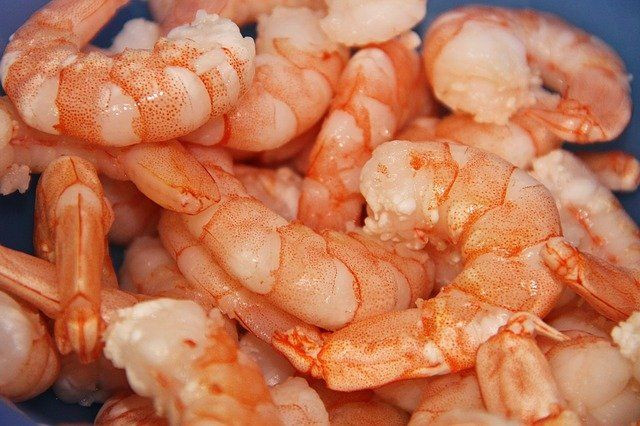National Shrimp Day: 7 Incredible Health Benefits Of Eating This Seafood
National Shrimp Day is celebrated each year on May 10 to recognize America’s favorite seafood. It is estimated that an average American consumes around 15.5 pounds of seafood annually, out of which 4 pounds is shrimp.
There are more than 2,000 different species of shrimp found all over the world from the tropics to the Antarctic Ocean. The most common shrimp species in the United States include Gulf Brown Shrimp, Gulf Pink Shrimp, and Gulf White Shrimp.
The statistics show that Americans consume around 1/5th of the world’s supply of shrimp every year which is estimated to be 1.32 billion pounds.
Shrimp has been part of human cuisine since ancient times. Modern shrimp harvesting in the U.S. dates back to the 17th century when residents of the Louisiana territories used giant seines to scoop up batches of shrimp. The mechanized methods of harvesting shrimp that began around World War II increased the yield of shrimp.
Various methods of preparing shrimp include baking, boiling, broiling, sauteing, frying, and grilling. Cooking time is delicate for shrimp, and they are at their best when not overcooked.
Some popular American shrimp dishes are shrimp cocktails, seafood gumbo, Shrimp Scampi, and Shrimp DeJonghe.

From improving memory to lowering body fats, there are many health benefits of this popular seafood. Take a look:
1. May help in weight loss: Eating shrimp can help in weight loss as they are low in calories, high in protein and other nutrients. Shrimp is a rich source of nutrients like iodine, vitamin D, and zinc. The high levels of zinc in shrimp help increase leptin levels in the body. Increased levels of leptin help regulate appetite, fat storage, and overall use of energy in the body. The hormone leptin reduces craving and helps people to avoid overeating.
2. Maintain eye health: The antioxidant astaxanthin present in shrimp protects the retina against oxidative damage, especially from excessive sunlight exposure.
3. Bone strength: Shrimp is a rich source of phosphorous and vitamin D. Adding shrimp to your diet can help you maintain bone strength, bone quality and prevent osteoporosis.
4. Skin protection: The antioxidant astaxanthin in shrimp can also help reduce wrinkles and improve skin elasticity.
5. Protection against heart disease: Although shrimp has high cholesterol content, researchers have found that consuming shrimp is beneficial to prevent heart diseases. This is because shrimp is high in omega-3 fatty acid that has many anti-inflammatory properties, and is vital for heart health.
6. Women’s health: The antioxidants and omega-3 fatty acids in shrimp may help reduce premenstrual symptoms. They are also known to help alleviate menstrual cramps in women and promote healthier blood flow to the reproductive organs.
7. Improve brain health: High levels of iron, iodine, and astaxanthin in shrimp help improve brain health by enhancing memory, increasing survival of brain cells, and reducing the risk of brain inflammatory diseases.
© Copyright IBTimes 2025. All rights reserved.





















